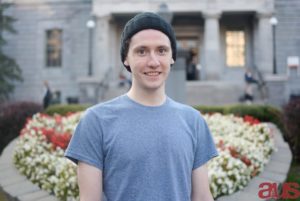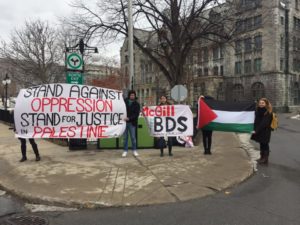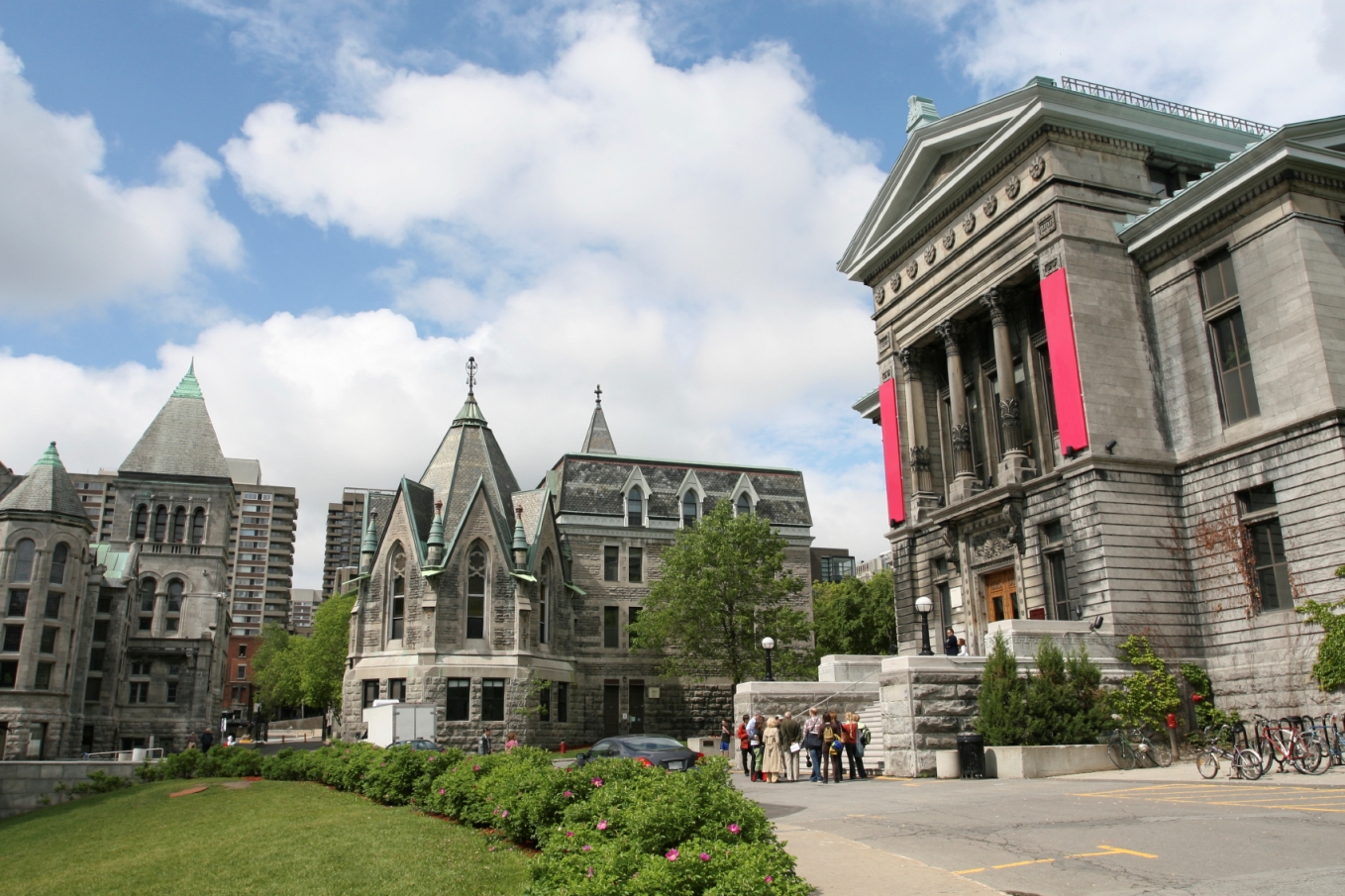McGill University principal Suzanne Fortier has intervened in a controversy over whether three students were denied seats on the undergraduate student union’s highest body because they are pro-Israel or, as many in the Jewish community allege, simply because one of them is Jewish.
Under mounting pressure from Canadian Jewish groups, Fortier announced on Oct. 25 that she has ordered an investigation to determine the facts in this matter.
“Allegations have arisen suggesting that the votes against one or more of those directors were motivated by anti-Semitism,” she wrote in a memo to students and staff.
“We take such matters very seriously, as it is essential for McGill University to maintain an environment where different views and ideas can be expressed and debated with mutual respect.”
By that day, close to 1,300 had signed an online petition demanding that Fortier act after the nominations for three members of the Students’ Society of McGill University (SSMU) board of directors were not ratified at SSMU’s fall general assembly on Oct. 23.
The signatories allege that was because “they are Jewish or have vocally opposed anti-Jewish discrimination on campus.”
B’nai Brith Canada, which is circulating the petition, charges that the three students were “removed” in “the latest in a long string of anti-Semitic incidents” at McGill.
Friends of Simon Wiesenthal Center (FSWC) also made public an Oct. 25 letter to Fortier in which the organization described “blatant anti-Semitism” during and leading up to the SSMU assembly.
In its report on the assembly, The McGill Tribune, an independent, student-run campus newspaper, said the nominations for seven directors were ratified for one-year terms beginning Nov. 15 in separate votes for each.
The nominations of Noah Lew and Alexander Scheffel, who were seeking renewals of their current mandates, failed, as did that of newcomer Josephine Wright O’Manique.
When Lew’s bid was rejected, a large number of the approximately 200 students at the assembly left the room in protest. Lew is Jewish.
Lew claims he has been targeted by students supporting the boycott of Israel because of his advocacy against the campaign – and for being Jewish. He posted on his Facebook page, reprinted on CJNews.com, “I was blocked from participating in student government because of my Jewish identity and my affiliation with Jewish organizations.” Lew, a third-year arts student from Edmonton, is a former Hillel vice-president and is involved with the Canadian Jewish Political Affairs Committee (CJPAC).
SSMU president Muna Tojiboeva agrees. “I think it’s very disappointing that, as a school, we would vote against a member [Lew] only on the basis that people recognize his last name, and on the basis that he’s Jewish. I think it’s quite shocking that in the 21st century such an elite institution would still go with that.”
READ: MCGILL STUDENT UNION UPHOLDS ANTI-BDS MOTION
However, Tojiboeva and Lew appear to have lost favour with some students over a controversial board decision to suspend its vice-president finance for a matter unrelated to Israel.
Tojiboeva faced a non-confidence motion from the pro-BDS group Democratize SSMU at the assembly, which was dropped after it received a simple majority, not the two-thirds required.
Tojiboeva’s leadership has been challenged by Democratize SSMU because it claims she was in conflict of interest for bringing forward an SSMU Judicial Board reference from May 2016 that BDS motions violate SSMU’s constitution and equity policy. Tojiboeva was one of three Judicial Board members at the time the reference was handed down.
The SSMU board ratified the reference on Sept. 17, 11-0, with one abstention.
Democratize SSMU was formed in “reaction to the unjust” board ruling. Before the assembly, it campaigned to have board members that they perceived to have a “conflict of interest” on the issue of BDS removed. According to B’nai Brith, Igor Sadikov, the Jewish student who was in hot water last winter for his “punch a Zionist” tweet, is part of the group.

Democratize SSMU “apologized unreservedly for the harm that was done through some of our campaign material,” specifically that which was “insensitive to anti-Semitic tropes of Jewish people as corrupt and politically powerful…
“We want to validate that anti-Semitism is not acceptable anywhere, and is a real and toxic force in our society and on campus.”
That does not satisfy Lew, FSWC or the other Jewish organizations that have expressed outrage. The group continued to single out board members who are “fellows of [CJPAC], an organization whose specific mandate is to promote pro-Israel discourse in Canadian politics, or primarily organizers for the anti-BDS initiative at McGill.”
Those with “such partisan politics should not have had the power to stage this vote [on the reference] without student consultation or declaring their conflicts of interest,” it declared.
FSWÇ president Avi Benlolo said that during the assembly a student asked why there was a lack of diversity among the names put forward for board seats, which was perceived as discriminatory by those who walked out in protest.
As he wrote to Fortier, “This vote sends a message that Jewish students are not welcome, a type of exclusion and racism that has no place at universities that claim to support equity and inclusion.”
The Centre for Israel and Jewish Affairs (CIJA) is avoiding the charge of anti-Semitism in raising its concerns.
“That students are being stigmatized and banned for their political views is sufficiently egregious, but when their very identity causes exclusion a line has been crossed that will taint SSMU until the wrong has been righted,” CIJA Quebec co-chair Rabbi Reuben Poupko stated.
“The SSMU has profoundly undermined their own reputation. Jewish students at McGill continue to stand proud while those who acted [at the assembly] should bow their heads in shame.”

He told The CJN that CIJA is refraining from describing what happened as anti-Semitic because “it would distract from the conversation we are trying to have,” although, to his own mind, this is case of “targeting Jews for their identity.”
McGill student David Naftulin, a fellow of the pro-Israel advocacy organization Hasbara Fellowships Canada, said, “For Jewish students who went to the General Assembly, the message we received was loud and clear – when it comes to finding members for the SSMU executive, Jews need not apply.”
His colleague Eton Ziner-Cohen added that, despite the efforts of the SSMU president to “ensure that this culture of vitriol is no longer tolerated, the campaign mobilized against students of Jewish heritage to remove them from positions of power was one that teemed with explicit anti-Semitic tropes and innuendoes.”
Another pro-Israel group active on campus, StandWithUs Canada termed it an “anti-Semitic vote” and says Lew was “subjected to a smear campaign.”
Campus director Zina Rakhamilova claims what transpired is of a piece with the “discriminatory double standard” to which Jewish and pro-Israel students are subject at McGill.
“There have been many pro-BDS officials in the SSMU over the years, and none have been asked to declare a ‘conflict of interest’, let alone been kicked out of their positions,” she said.
Even the McGill chapter of the anti-Zionist Independent Jewish Voices agrees in part.
It posted on Facebook: “We hold that the language used by the Democratize SSMU campaign in discussing Jewish students in positions of power utilized traditional anti-Semitic tropes. We believe that it is important to hold our allies accountable, even and especially when there is a divergence between intent and impact.
“However, we also maintain that Democratize SSMU’s specific reference to three BoD members was not contingent on their Jewish identities, nor was our shared opposition to the reappointment of Noah Lew.”
IJV says it opposed the three nominees because of their affiliation with “external Zionist institutions.”
Fortier has also instructed that a task force be appointed to examine more broadly the situation and recommend “how to ensure that our values and principles of academic freedom, integrity, responsibility, equity and inclusiveness are respected.”
In the meantime, she wants a support line set up where incidents of “intolerance based on religion or ethnic origin” occurring on campus can be reported.







